The new students started a few weeks ago and now that they are getting into the swing of things, they would like to take the opportunity to introduce themselves:
 Ahmad Faisal, 29
Ahmad Faisal, 29
Background:
Doctor of Veterinary Medicine (DVM), graduated in 2009 (Yogyakarta, Indonesia). My dissertation focussed on the effect of bacterial infection in 3-week-old chickens, observed via conducting blood tests. I have spent 4 years working as a wildlife veterinarian in an Orangutan Pongo pygmaeus rehabilitation centre in East Borneo, and breeding long-tailed macaques Macaca fascicularis on Bintan island, Indonesia.
Research Area:
My research project will hopefully concentrate on large carnivores in Zimbabwe, working with the Dambari Wildlife Trust (one of Marwell’s long-term partners) under the supervision of Dr Nicola Pegg (Director of Research at Dambari Wildlife Trust).
Why I Chose MRes Wildlife Conservation:
I have always wanted to work with wild animals, that is why I became a veterinarian. I chose the MRes Wildlife Conservation course because I believe it can give me a more in-depth knowledge about conservation because it has a greater basis in biology than veterinary sciences.
Aims for the Future:
My hope is to establish myself as a wildlife veterinarian and conservation biologist, involved in preserving biodiversity on mother earth.
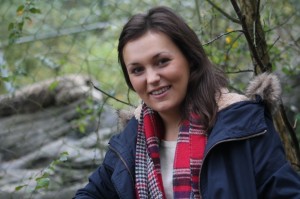 Kezia Bellamy, 21
Kezia Bellamy, 21
Background:
I graduated with a BSc (Hons) in Bioveterinary Science from the University of Liverpool in July 2014. For my third year dissertation research project, I explored the epidemiology of an outbreak of campylobacteriosis in a captive-bred colony of long-tailed macaques, Macaca fasicularis, within the Institute of Infection and Global Health. Before my undergraduate degree, I enjoyed various work experience placements at Twycross Zoo, 608 Veterinary Surgery and The Wildlife Heritage Foundation.
Research Area:
For my 8-month research project, I am proposing to explore the rehabilitation and reintroduction of Spur-thighed tortoises, Testudo graeca, rescued from the illegal wildlife trade. I will be based in Dghoumes National Park in Tunisia working alongside my Marwell Supervisor and wildlife vet, Dr. Marie Petretto (Marwell’s Conservation Biologist based in Tunisia).
Why I Chose MRes Wildlife Conservation:
I chose this course because it is unique; it combines my interests in animal biology and ecology with my ambitions to pursue a career in wildlife conservation, whilst also offering the opportunity to enhance my fieldwork experience by visiting both Kenya and Tunisia. I really enjoyed devising and conducting my undergraduate dissertation, so I am very excited to undertake a more in-depth research project internationally.
Aims for the Future:
I hope that this course provides me with the tools, knowledge, experience and networking skills to establish myself successfully within this sector, as I would love to one day have an active role in re-introduction programmes of endangered species.
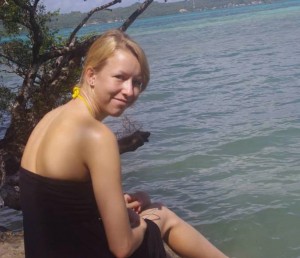 Kat Berry, 21
Kat Berry, 21
Background:
I graduated with a BSc (Hons) in Zoology from University of Southampton in July 2014, after conducting my dissertation research in Indonesia. I studied the effects of human activity on the health of reefs and the resulting differences in diversity and distribution of nudibranch sea slugs, mainly Chromodoris annae and Phyllidiella pustulosa, while working with Operation Wallacea on active beach clean projects and coral reef monitoring.
Research Area:
Biological species differences among Felidae in relation to responses to conservation interventions. Through this meta-analysis, I am hoping to clarify what differences lie between species in a taxon that may influence the success of a captive breeding program or conservation initiative. I am keen to become involved in reintroduction projects in the future, the success of which may be impacted by factors such as adaptation to captivity, species susceptibility to change, and other differences.
Why I Chose MRes Wildlife Conservation:
Knowing that I wanted a future in conservation biology, it seemed there was a toss-up between experience and postgraduate qualifications in terms of what would give me the best boost into the sector. This course was the perfect combination, with the added bonus of being based between my former campus and a zoo I spent much of my childhood visiting, in addition to fieldwork experience in Africa.
Aims for the future:
I hope to gain the relevant knowledge and experience to begin a successful career in conservation biology. I’d like to be able to travel and work closely with species that need conserving in the wild. However, in the long-term, I would like to be based in the UK, possibly working on reintroduction projects around the world.
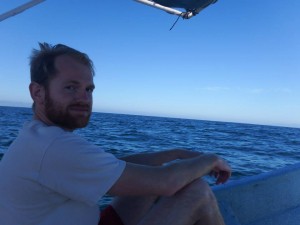 Daniel Bolt, 29
Daniel Bolt, 29
Background:
I graduated with a BSc (Hons) Zoology from the University of Southampton in 2014. My final year research project examined whether U.K. bumblebees preferentially visited an invasive plant, Impatiens glandulifera, over native plants in a riverine habitat. During and after my degree, I have undertaken internships with the South African Shark Conservancy, learning marine field skills, and the Hampshire and Isle of Wight Wildlife Trust, examining bumblebee foraging preferences within agri-environment schemes. As well as this, I have worked carrying out bat surveys for a local ecological consultancy.
Research Area:
U.K. based field project working on habitat restoration, under the supervision of Dr. Martin Wilkie (Marwell’s UK-based Conservation Biologist).
Why I Chose MRes Wildlife Conservation:
The level of involvement from Marwell Wildlife and the prospect of working alongside practicing conservation biologists was a major factor in picking this course. I have an opportunity to carry out a piece of research that will be relevant to current conservation initiatives.
Aims for the Future:
I want to pursue a career within the field of conservation biology, specifically looking at habitat restoration and ecosystem functionality working for a non-government organisation (NGO).
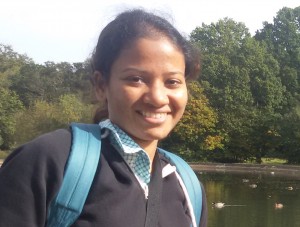 Surendranie Cabral, 26
Surendranie Cabral, 26
Background:
BSc Zoology (Hons) from University of Colombo, Sri Lanka, graduated in January 2013. I did my undergraduate research dissertation on the effect of land use patterns on group size, composition and habitat use of western purple-faced langurs Trachypithecus vetulus nestor.
My interests lie in behavioural ecology, human-wildlife conflict and primates. After graduation, I worked as a teaching assistant in the Department of Zoology, University of Colombo, and volunteered for Conservation Coalition of Sri Lanka to study the human-monkey conflict on the island.
Research Area:
My research project will be based at Lewa Wildlife Conservancy in Kenya, working with Dr. Zeke Davidson (Marwell’s Conservation Biologist, resident in Kenya).
Why I chose MRes Wildlife Conservation:
This is a uniquely research-intense programme, which will provide the platform to develop myself as a holistic conservation biologist. It provides international exposure and the training in field techniques with a multidisciplinary approach to tackle present day conservation issues.
Aims for the Future:
I hope to pursue a career in research, working towards the conservation of endangered species and mitigating human-wildlife conflict through the study of their behavioural ecology.
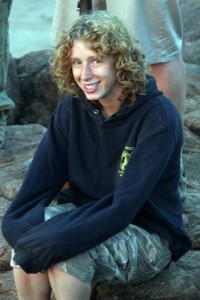 Aimee Farndale, 23
Aimee Farndale, 23
Background:
I graduated with aBSc (Hons) in Zoology with Conservation from Bangor University (2012). For my undergraduate research project, I explored the use of zigzag patterns as an aposematic signal in Adders in the UK. During my undergraduate degree, I spent a month in Botswana, monitoring animal populations and movement within the Tuli block. Over the past two years, I have worked in animal rescue, further studying animal behaviour and welfare.
Research Area:
Population management and animal behaviour based at Marwell Zoo working alongside Dr. Heidi Mitchell (Marwell’s Research and Higher Education Manager).
Why I Chose MRes Wildlife Conservation:
The combination of practical fieldwork and lectures given by active conservation biologists, and having the opportunity to be involved in conservation projects with Marwell Wildlife.
Aim for the future:
I would like to be further involved with conservation education projects based in the UK.
 Andrea Franceschin, 27
Andrea Franceschin, 27
Background:
BSc Environmental Sciences (Ca’ Foscari University of Venice) – 2009. MSc Marine Biology (University of Trieste) – 2012. Previous research includes: Methods for the analysis of the structure in fish populations (Venice, Italy); Great White shark population status (Mossel Baai, Republic of South Africa); Chemical synthesis and in vivo biological activity of the hyperglycemic hormone cHH of Procambarus clarkia (Trieste, Italy).
Research Area:
Researching large herbivore abundances and interactions with livestock, based at Dambari Wildlife Trust and Matobo National Park, in Southern Zimbabwe under the supervision of Dr Nicola Pegg (Director of Research at Dambari Wildlife Trust).
Why I Chose MRes Wildlife Conservation:
It is a unique collaboration between a wildlife organization and a university, about Conservation. You can really learn on the field from specialists.
Aims for the Future:
I am looking for new challenges! I realised that I want to combine writing reports (I am an amateur novelist and writer), and my experience in the construction of a scientific method, and in data collection and analysis, with knowledge of the animal world, endangered species and habitats. In a few words, I want to become a conservation biologist and I hope that this MRes will provide me with the basis and the contacts to apply, find a job, and establish myself in this field.
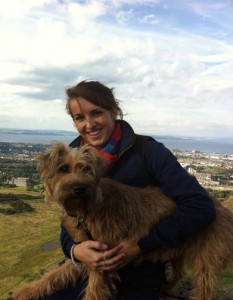 Holly Maynard, 22
Holly Maynard, 22
Background:
I graduated with a BSc (Hons) in Zoology from Liverpool John Moore’s University (2014). For my undergraduate research project, I explored speciation by using BPP statistical modelling approach to analyse species delimitation within two African elephant species, Loxodonta cyclotis and Loxodonta africana. I recently carried out a ten-week internship with Durrell Wildlife Conservation Trust based within the mammal department.
Research Area:
For my MRes research project, I will be working alongside Marwell supervisor Dr. Marie Petretto (Marwell’s Conservation Biologist, based in Tunisia) exploring the reintroduction of threatened species into field sites within Tunisian National Parks, focusing on social dynamics and diet selection.
Why I chose MRes Wildlife Conservation:
The course is so unique! It enables me to continue my ongoing interests into scientific research and independent study whilst working closely with Marwell, getting an insight into modern day conservation efforts and techniques.
Aims for the Future:
In the future, I would like to carry out research within the field to explore wildlife conservation issues and grow within the conservation community, in the hope to protect species from extinction.
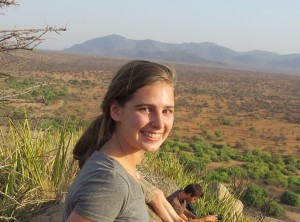 Beth Preston, 21
Beth Preston, 21
Background:
I graduated with a BA (Hons) in Biological Sciences from University of Oxford in July 2014. My undergraduate research project was desk-based, exploring the effect of the moon phase on the hunting and movement behaviour of lions in Zimbabwe. Between my undergraduate degree and starting the MRes, I worked for a month as an intern for Save the Elephants at their field research camp in Kenya.
Research Area:
Studying elephants or large carnivores at either Lewa Wildlife Conservancy in Kenya or the Dambari Wildlife Trust in Zimbabwe.
Why I chose the MRes:
I want to gain more in-depth research and field experience and I feel that this course will provide it, because of the amazing opportunity to engage in applied field research in Africa alongside the taught modules. I hope this will help me prepare for a PhD and further research career in conservation.
Aims for the future:
I would like to work in applied conservation field research studying large mammals, potentially mitigating human-wildlife conflict.
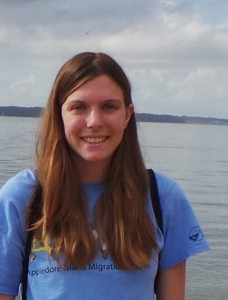 Kristen Whyle, 21
Kristen Whyle, 21
Background:
BSc from Canisius College (USA) with majors in Biology, and Animal Behavior Ecology and Conservation and minors in Environmental Biology and Anthrozoology (2014). My undergraduate research focused on the behavior of beluga whales Delphinapterus leucas (topics I examined included associations between whales in relation to sex and age, calf development, and mother-calf relationships). Over the summer of 2014, I helped collect data on migratory birds (focusing on warbler’s responses to flight calls) on Appledore Island, ME.
Research Area:
Field project based on UK ecology, under the supervision of Dr. Martin Wilkie (Marwell’s UK-based Conservation Biologist).
Why I Chose MRes Wildlife Conservation:
The opportunity to conduct an in-depth field-based research project with the potential to make a real difference in the field of wildlife conservation, along with the opportunity to learn from practicing conservationists from an established conservation organization, drew me to this course, as did the field trip to Kenya.
Aims for the Future:
I plan on obtaining a PhD, and pursuing a career conducting field research related to wildlife conservation.
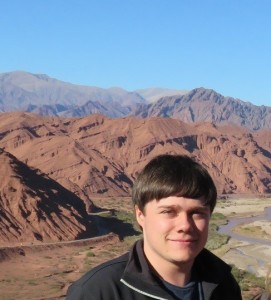 Tom Wingrave, 23
Tom Wingrave, 23
Background:
I graduated with a Geography BSc (Hons) from the University of Southampton, and then spent a year working in project management at the local council before embarking on a 2-month tour of South America. My undergraduate research project was based on a reconstruction of Palaeoglaciers from the Loch Lomond Stadial in the English Lake District.
Research Area:
I will be evaluating the relationship between antelope populations and protected areas with Dr Tim Woodfine (Marwell’s Director of Conservation) based at Marwell Zoo.
Why I Chose MRes Wildlife Conservation:
I felt the structure that this course offered, with both taught and research-based elements, was unique and I hope that it will set me up with the knowledge, skills and contacts to become established in the conservation community or to undertake further research.
Aims for the Future:
In the future I hope to go into further research within academia or for an NGO, however, I wouldn’t rule out going into environmental consultancy if I found the right role for me within an organisation.
Posted By : dvf1e13